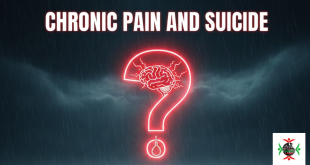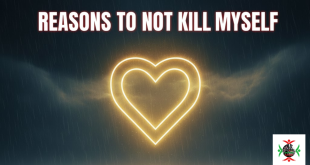.
Suicide can be a complex and sensitive subject, associated with feelings of despair, loneliness and hopelessness. For many people, the issue of whether suicide is a sin is not just theological or philosophical but deeply personal and emotional. In this article, we wish to address with differing views about suicide; religious, ethical and psychological. We want to examine this subject in a sensitive and compassionate manner, provide real help for people with suicidal thoughts and for the friends of those who are considering suicide.
1. What is Suicide?
When someone kills himself or herself on purpose, this is called suicide. It usually occurs as a result of intense emotional distress, mental illness or feeling hopeless.” That’s what makes it a sad down end to sadder truths. And suicide remains one of the leading causes of death around the world, particularly for young adults. More than 700,000 people commit suicide each year, according to the World Health Organization (WHO). Even as the numbers are scary, we have to talk about suicide with care and compassion, recognizing that every case is different, with its own set of circumstances.
2. Religious Perspectives on Suicide
2.1 Christianity’s View on Suicide
A great many Christians hold that life is a gift from God and that suicide is contrary to God’s will. Many Christian denominations believe suicide is a sin as it violates the commandment “Thou shall not kill.” Still others say that one commits suicide in opposition to God’s plan and does not believe in His purpose.
Christian teachings emphasize instead knowing and forgiving. Perfect, if someone’s religious they won’t commit suicide — right?Traditional comprehension may deem that suicide is a sin but modern Christian comprehension answers something else: that depression makes it harder to make choices. Many Christians say people who are contemplating suicide should be shown kindness and supported. They emphasize that they can heal through God’s love and grace.
2.2 Islamic Perspective
According to Islam life is a sacred gift from Allah, and suicide is forbidden. The Quran and Hadith (the sayings of the Prophet Muhammad) state that to kill oneself in any form or way is against Allah’s will and should not be done. “And do not kill yourselves (nor kill one another): Surely Allah is Most Merciful to you” (Quran 4:29).
But then again, Islamic teaching also acknowledges how important mercy and compassion are. In Islam, the people who commit suicide due to mental illness or overwhelming sorrow should not be browbeaten but can only be judged by Allah who knows what lay in their hearts. So while suicide is a sin, good care should be taken to speak sensibly and sympathetically about it.
2.3 Other Major Religions
- Hinduism: In Hinduism, Hindus understand life as a cycle of birth and death. Suicide mignty be viewed by some as a disruption of the natural order and violation of dharma (27). Hindus believe that this process must be allowed to continue and suicidal behaviour obstructs it. But the concept of karma is that people who kill themselves will have to meet with the consequences in their next lives.
- Buddhism: Buddhists regard life as precious and emphasize understanding your own thoughts, feeling and kindness to others. The killing of oneself is considered in this tradition to be spiritually negative–an avoidance of suffering rather than an affirmation of it. Buddhism says the best way to overcome suffering is to seek wisdom and enlightenment.
- Judaism: The teachings behind Judaism state that life is sacred and one is prohibited from committing suicide. Judaism also teaches the value of mental health, and those who take their own lives are not judged harshly. Judaism has an explicit emphasis on the importance of helping people who suffer from mental illness and aiding them in healing.
3. Psychological Viewpoints on Suicide
Mental Illness and Suicide Mental illness, often depression, anxiety disorder, bipolar disorder or post-traumatic stress disorder (PTSD), is commonly associated with suicide. In many cases, those entertaining thoughts of suicide are suffering immensely emotionally and view death as the only path to relief.
Suicide is often seen as a symptom of untreated mental illness. It’s also helpful to remember that people who are considering killing themselves, however personal or seemingly related to you, may not be thinking with clarity and may view their situation through a lens distorted by mental illness. With appropriate assistance, therapy and intervention, suicides can frequently be prevented.
4. Ethical Considerations
4.1 Moral Philosophies on Suicide
Ethical perspectives There are widely differing views on the topic of suicide from an ethical standpoint. Some moral philosophies (such as deontology) maintain that suicide is inherently morally wrong based on an obligation to oneself and, therefore according to some views, violates a fundamental duty; likewise in certain religious movements suicide is deemed equally sinful. That which is best for the greatest number-and suicide, being a harmless act in of itself, can still have negative consequences on society and on potential, it often views as wrong.
However, some moral philosophies, particularly those of individual empowerment, argue that a person has the right to end his or her life if this is determined as being in their best interests. These are often challenged perspectives as they go contrary to beliefs about duty and shared responsibility.
4.2 Suicide in the Context of Autonomy
The issue of personal freedom is highly relevant in the moral discussion of suicide. Certainly many societies protect the rights of people most of the time, but once we get to a human moral decision that someone can make a choice for themselves under democratic law to end their lives, then I can’t disassociate myself with this image. “Man is conscious of this dependence,” the Illinois court continued, “is sensible to its mortality and commonplace, and desires to shake off its dominion because it furnishes one of the few fixed landmarks he knows in the march of time.” Sometimes people think they are expressing freedom when they choose to put an end to their own life, but such a view jars against the sense that existence should be protected, at whatever price.
5. Suicide and Its Consequences
Suicide takes a huge toll on the people who remain — emotionally and socially. The people close to the person who died usually feel guilty, angry and handed a little confused because they don’t know why the person thought they had no other choice. Suicide can also reverberate throughout communities, workplaces and even entire countries.
Suicide in some states or countries is a crime but the law around it can be complex. But in the end, the law generally has more to do with assisting people who are mentally ill and preventing more tragedies than punishing them.
6. How to Help Those Struggling with Suicidal Thoughts
If you or someone you know is thinking about suicide, it’s really important to get help. You can receive quick assistance from mental health professionals, support groups and hotlines. It is important to convey compassion, help if we can and recommend seeking professional help.
In the United States, the National Suicide Prevention Lifeline is open 24 hours a day at 800-273-8255; calls are confidential and free. Call 1-800-273-8255. Most other countries have their own suicide prevention services and helplines that may be very great.
7. Conclusion
Whether suicide is a sin or not does not present an exact answer received and everyone wll depend on religious, moral and psychological motive simply bcause. What is clear to me, however, is that suicide is frequently born of a profound and distressed state of mind and heart; so we must talk about it with the great care and love. Everybody needs help, and we want people who are in trouble to have an opportunity to get well.
If you or someone you love is struggling, do not be afraid to reach out for help. Kindness, helpfulness and understanding can all stop someone from killing themselves and give them hope of a better future.
FAQ:
- Is suicide considered a sin in Christianity?
- Answer: Why do so many Christian denominations consider suicide to be a sin, when it is self-murder? But contemporary Christian beliefs emphasize kindness and understanding, particularly when it comes to mental illness. Anybody with suicidal thoughts needs help and love.
- What does Islam say about suicide?
- Answer: Life is a gift from Allah and to take one’s life in suicide is considered a sin. According to the Quran, people should avoid causing harm to themselves. Islamic teachings also emphasize mercy and compassion, particularly for people who may have acted due to mental illness or extreme despair.
- How does Buddhism view suicide?
- Answer: Buddhism teaches that life matters and that we should try to respond to suffering with wisdom and kindness. People who accept suicide believe it is judgment of avoiding pain and ceasing to grow spiritually. Buddhists believe the best way to end suffering is by seeking enlightenment and understanding.
- What are some psychological causes of suicidal thoughts?
- Answer: People with depression, anxiety disorder, bipolar disorder or PTSD not uncommonly fantasize about killing themselves. For those affected by these conditions, death may be seen as a means of escaping from the emotional pain they experience. A great number of suicides can be stopped with the right mental health care.
- How can I help someone who is struggling with suicidal thoughts?
- Answer: Listening and showing compassion, Suggesting professional help. You might also provide them with phone numbers for suicide prevention hotlines or mental health professionals. If you can get them to say how they feel, it can really help them to gain a positive focus.
 Prevention from Suicide, Addiction, Narcotics and Pollution. Withdrawal and Recovery Facts of Narcotics | Symptoms of Suicidal thoughts & Ideations | Effects of Environment Pollution | Understand Addiction withdrawal
Prevention from Suicide, Addiction, Narcotics and Pollution. Withdrawal and Recovery Facts of Narcotics | Symptoms of Suicidal thoughts & Ideations | Effects of Environment Pollution | Understand Addiction withdrawal






